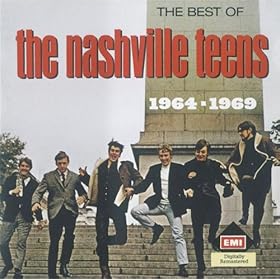 "Who is Don Draper"
"Who is Don Draper"And so begins the slight of hand intro for the fourth season of Mad Men, as he's being interviewed by a one-legged Ad Age journalist. It being the first episode and all, I'd be hesitant to draw too many conclusions in regards to the season as a whole, but the book-ending interviews certainly provided an efficient point A and point B of a Don Draper journey (References to a second floor, both in the building and in the Jantzen swimsuit ad, also seem to cleverly suggest progress.)
For the first two seasons, Don walked the line between keeping a low profile and doing great creative. Remember back in season one, just getting his picture in the paper for winning an award brought his brother into his circle, with tragic consequences. With that in mind, is it any wonder Don is a little reluctant to divulge anything to a journo? Another point of note from that interview was that the journalist was a genuine victim of the Korean war, both the birthplace and the achilles heel of any truthful discussion of "Who's Don Draper."
It's a different world, though now for Don, and the final interview suggests he might just be starting to recognize it, even if it's only an act to help the firm. Getting exposed isn't as big an issue now. First Pete, then Cooper and finally Betty all have found out the truth, and his family is all deceased (conveniently matching his fake background). Not only is there less worry over being found, but there's an urgent need for him to finally step into the light, being the face of the firm, and that's what makes that final scene such a key pivot.
 As the dialogue fades, the end credit music kicks in almost abruptly with the strong guitar of the Nashville Teens recording of "Tobacco Road." A lot of people are probably going to make the case that the song is a reference to their SCDP's main client, Lucky Strike, but I'd argue the music choice has more to do with who's playing guitar on it. A young session guitarist by the name of Jimmy Page* is banging out that riff, creating a kind of elevator between 1960 (when the song originally was written and recorded by John D. Loudermilk as a folk song) and what's to come when Page helps popularize distortion with the Yardbirds (and later, obviously, with Led Zeppelin). This season is supposed to be about change, and there's not many better examples of it than what Page & Nashville Teens bring to the recording.
As the dialogue fades, the end credit music kicks in almost abruptly with the strong guitar of the Nashville Teens recording of "Tobacco Road." A lot of people are probably going to make the case that the song is a reference to their SCDP's main client, Lucky Strike, but I'd argue the music choice has more to do with who's playing guitar on it. A young session guitarist by the name of Jimmy Page* is banging out that riff, creating a kind of elevator between 1960 (when the song originally was written and recorded by John D. Loudermilk as a folk song) and what's to come when Page helps popularize distortion with the Yardbirds (and later, obviously, with Led Zeppelin). This season is supposed to be about change, and there's not many better examples of it than what Page & Nashville Teens bring to the recording. *Back in his session music days, he was known as "Little Jim" to distinguish himself from another session guitarist, "Big Jim" Sullivan. 1964 was a big year for Page. Besides "Tobacco Road," he worked on Marianne Faithfull's "As Tears Go By", The Rolling Stones' "Heart of Stone," Van Morrison & Them's "Baby Please Don't Go" & "Here Comes the Night", Dave Berry's "The Crying Game" and "My Baby Left Me", Brenda Lee's "Is It True," Petula Clark's "Downtown," The Who's first single "I Can't Explain" and contributions to The Kinks' 1964 self-titled debut album.
Previously: "Shut the Door, Have a Seat" (Season 3 finale)
2 comments:
Loved the episode, but knew there had to something more to the final song. Knew I could count on you to find it out!
same here!
thanks
Post a Comment